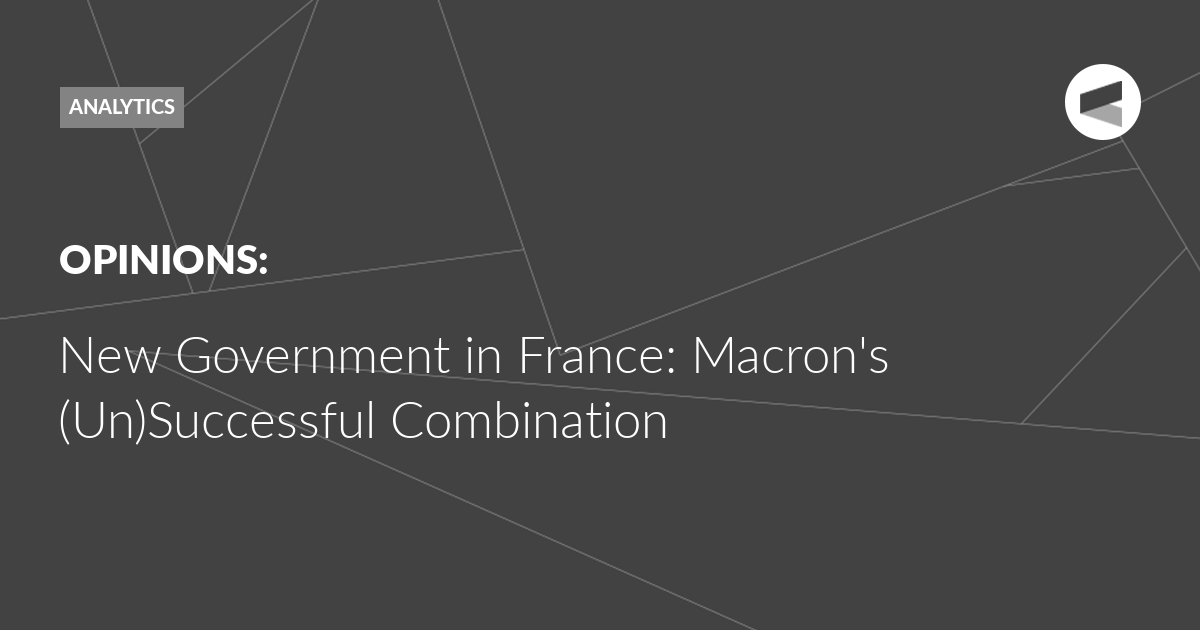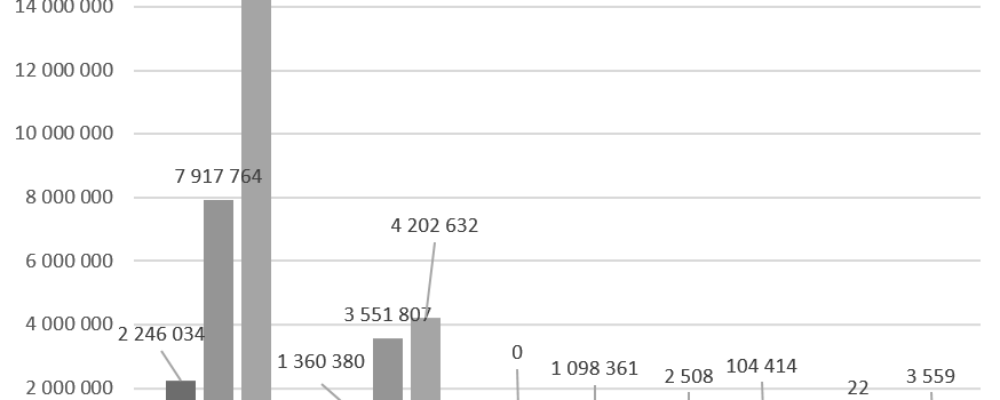The appointment of a prime minister hasprovided short-term relief for the French political system, but will not lead it out of the impasse in which it has found itself at the behest of President Emmanuel Macron, believes Alexey Chikhachev, senior lecturer at the Department of European Studies, Faculty of International Relations, St. Petersburg State University.
In early September, after two months of behind-the-scenes negotiations with all political factions, the Elysee Palace announced the appointment of a new prime minister. He is 73-year-old Michel Barnier, a figure known on a national and European scale for his work in the government under previous presidents and, above all, for his status as the EU’s chief negotiator with the UK during Brexit. Before him, a number of other candidates dropped out of the race, including Lucie Castet, a city hall official and a protégé of the left-wing opposition, and Xavier Bertrand, a prominent “heavyweight” among the centre-right Republicans (formerly Gaullists). As a result, the Fifth Republic has developed a surprising configuration of executive power: the youngest president in its history will coexist with the oldest prime minister. The explanation for such a protracted “casting” by French standards lies in the outcome of the early parliamentary elections held this past summer.
By dissolving the National Assembly, Macron apparently hoped that the forces loyal to him would be able to strengthen their position by gaining not a relative majority, which they had had since 2022, but an absolute majority, as in the first five years in power. However, in reality, the situation has only become more confusing: the pro-presidential Renaissance party and its allies have rolled back to second place, giving way to the left-wing coalition of the New Popular Front, while on the other flank, the National Rally faction of Marine Le Pen and Jordan Bardell has expanded to unprecedented proportions. Although the worst (that is, in the eyes of the establishment, a victory for the far right) was avoided, the resulting situation resembled a stalemate. Parliament was split into three roughly equal-sized camps that were not going to find a common language, plus the same Republicans sandwiched between the Macronists and Le Pen’s supporters. Consequently, each potential prime minister nominated by only one bloc risked receiving a no confidence vote from all the others literally in his first days in office.
Given that it is impossible to dissolve the chamber again for another year according to the Constitution, Macron had to eliminate the consequences of his own decision and seek to square the circle – to select a prime minister who would be convenient for him personally, but at the same time would not cause obvious rejection by the left and right opposition. The aforementioned candidates, not to mention many others circulating in the media, did not meet both criteria. Castet’s appointment would have been too big a concession to the left and would not have met with understanding from the right. Bertrand could have unfavourably “overshadowed” the president and would have immediately provoked a protest from the “New Popular Front” (and from Le Pen, with whom he has had a long-standing rivalry at the regional level).
Against their background, Barnier looked like the most acceptable alternative. On the one hand, he is also a Republican: the support of this party is extremely necessary for the Macronists now, when every mandate counts. The head of state has drawn personnel from there not for the first time, and representatives of this force have previously received significant ministerial portfolios (economy, internal affairs, defence). On the other hand, even with an understandable party affiliation, throughout his career Barnier has earned a reputation as being more of a balanced technocrat-administrator than a ‘man of the people’. This allows Macron to count on his new appointee to focus only on solving current problems and not to play his own game, which could hinder a genuine candidate for successor – for example, former Prime Minister Edouard Philippe, who recently announced his ambitions. In addition, Barnier’s career in Brussels institutions rhymes well with the foreign policy course of the current government – an unambiguous bet on deepening European integration.
Finally, over many years in politics, Barnier has managed to avoid major scandals surrounding his person and conflicts with other political forces. Having never seriously aspired to become president (his only attempt was during the unsuccessful 2021 intra-party primaries), he has not become a priority target for criticism from either the left or the far right. While his fellow party members were locked in battles with the Socialists, trying to stop Le Pen’s rise and hesitating before the temptation to join Macron’s team, he was consistently building a career, while still not being at the forefront of the political struggle. Partly due to this, the National Rally took a moderately optimistic position on Barnier’s candidacy, considering it necessary not to reject him outright, but to wait for the announcement of the program for the coming months (and even support it if the list of priorities includes limiting migration). It was the flexible position of the extreme right that not only allowed Macron to settle on the option with Barnier, but also to influence the formation of the government, which after the summer elections might have seemed impossible. Their leaders did not appear in the cabinet, but one way or another, now the Le Penites have received the opportunity to look like a “handshakeable”, constructive force, which was usually denied to them.
In the immediate future, it may seem that Macron is a winner, because he managed to avoid an unfavourable coexistence with the left and to bring a systemic, relatively loyal person to a key position. However, the difficulties do not end with the appointment of a new prime minister. First of all, the question of the distribution of ministerial positions arises: almost all of these positions were occupied by centrists and centre-rightists, and the situation will look as if Macron simply ignored the will of the citizens (which the left is especially emphasizing). The same criticism will be heard when Barnier presents his action programme in the National Assembly on October 1st and, most likely, will not put it to a vote among the legislators, which will be a formally legal, but morally dubious step.
The biggest problems will arise when the government starts working. Its first task will be to draw up the state budget for 2025, which will not be easy to handle even for such an experienced functionary as Barnier. According to statistics from the Insee institute, public finances have been in the danger zone for several years: the budget deficit has reached 5.5% of GDP, and the national debt had reached 110% by the end of 2023. Adjusting these indicators will require comprehensive economic reforms, for which the government, again, does not have carte blanche. Other topics that were blocked due to the early elections also remain on the agenda: school reform, the future of amendments to the pension legislation and unemployment insurance system, the status of New Caledonia, etc.
Most importantly, Barnier’s appointment does not change the balance of power that emerged in July: his government will still have to manoeuvre between several camps. Even having formed a forced coalition, the Macronists and Republicans will not gain the necessary number of seats for an absolute majority (230-240 instead of 289). Accordingly, the cabinet will still be constantly under the threat of a no confidence vote, salvation from which will lie only in the neutrality of the far right. Working with his hands effectively tied, the new prime minister will serve as a temporary “lightning rod” for Macron, who in a few months (at the latest – by next summer) will probably have to be replaced. Any kind of stable situation instead of the current unreliable compromises can only emerge following new parliamentary elections, and even more likely – the presidential campaign scheduled for 2027. Until then, Macron can only play for time and make combinations, so that one of his successors, whoever he may be, still has a chance of success.
The Valdai Discussion Club was established in 2004. It is named after Lake Valdai, which is located close to Veliky Novgorod, where the Club’s first meeting took place.
Please visit the firm link to site






